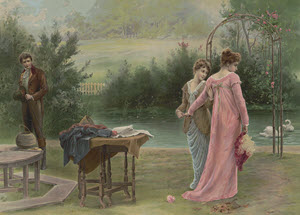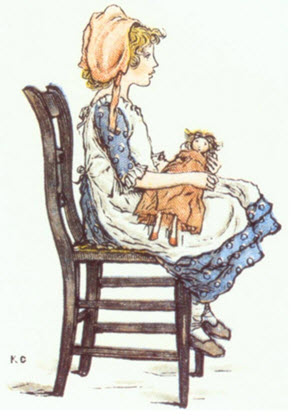the Tell-Tale Heart

the Tell-Tale Heart - Summary
The Tell-Tale Heart,first published in The Pioneer, in 1843, is a short story by Edgar Allan Poe. It is about the murder of an old man by the unreliable first-person narrator who claims to suffer from over The story is a classic of horror literature.
Summary of the Tell-Tale Heart
With his report, the first-person narrator wants to prove to the listener that he has irritable nerves and senses sharpened by his suffering ("I heard everything that happened in heaven and on earth; also some things that happened in hell."), but that he is by no means insane. Apparently, he is accused of this; perhaps in a police interrogation or in an examination in psychiatry. Because he killed an old man, but not out of hatred or greed for possession. He says that he loved the old man, he did not touch his money. The trigger for the crime was exclusively a physical peculiarity of the old man: one of his eyes, pale blue, was covered by a thin skin and resembled that of a vulture. He could not watch it without being seized by deadly hatred. In the following, he describes precisely the course of the deed and thus exposes even his psychosis:
For a week, the first-person narrator postpones the deed. This week he meets the old man during the day with special kindness. At night, however, when he sleeps, he visits him so quietly and prudently that he does not notice it. Then he opens a previously blinded lantern one gap wide and shines in his face. However, because the eye remains closed, he cannot kill him.
On the night of the murder, the narrator betrays himself by a sound. The old man is upright. The lurking perpetrator freezes to complete silence in absolute darkness. But he suspects that the frightened person feels his presence. So the two of them lie in wait for each other for an hour. The narrator enduringly imagines the victim's panic, which he himself knows well. Finally, he opens his aperture lantern one gap wide. The light falls on the hated eye. But he still can't bring himself to act until he hears how the old man's heart starts to beat louder and louder. He is afraid that the neighbors might hear the throbbing. With a scream, he jumps towards the old man, suffocates him under his bedding, but hears the heart of his victim beating for a long time.
The narrator also considers the way he hides the dead man to be proof of his clear mind. He disassembles the body, loosens planks from the floor of the room, stuffs the body parts into the cavity below and closes the gap again perfectly. To the policemen, who were alerted by a neighbor who heard the scream, he calmly explains with a smile that he himself had cast it out in a dream. The old man had gone to the countryside. The investigators see that the money is not touched and find no traces of violence. Her suspicions are dispelled and the narrator, in his exuberant sense of security, invites her to a chat at the crime scene. But in his ear begins a noise that increases to an ever louder throbbing, and he is convinced that the visitors also know the meaning of the sound, but make their mockery of it by hypocritically ignoring it. In order to free himself from his unbearable anguish, the narrator confesses the deed by shouting that the gruesome beating is the heart of the killed and it lies under the floorboards.
Interpretation
The narrative is a paradigm for suspense in literature: the reader knows from the beginning that the first-person narrator will kill the old man. The whole tension is focused on the how. With his constant assertions that he is completely reasonable, the first-person narrator only succeeds in convincing the reader that he is completely insane. The goal of killing a person solely because of a small physical anomaly is so irrational that even his most expedient pursuit becomes irrational. Poe proves to be a master of silence: he does not reveal with a word what actual relationship the perpetrator and his victim are. But where does a younger man live so closely with an older man as these two? The association that this is a conflict between son and father is by no means far-fetched. This view is supported by Marie Bonaparte, for whom Poe works through the hatred of his foster father John Allan in this story, who lovingly raised little Edgar, then heartllessly pushed the adult out into poverty and misery. The love hate relationship is expressed in this text together with its violence that favors the development of schizophrenia:
"I knew what the old man felt, and pitied him although I chuckled at heart."
"I knew what the old man felt and regretted him, even though my heart was gurgling with pleasure."
With the killing, the first-person narrator serves his hatred, but his love makes the heart of the victim beat again and forces the confession of the torn perpetrator.
According to Klaus Zobel, almost all commentators of the text are mistaken that it is a crime story. In doing so, one overlooks the monological conception of the text. Enclosed in the circle of a very idiosyncratic solipsistic conception and view of his world, the first-person narrator no longer succeeds in separating excessively imagined from what really exists. Poe shapes a nocturnal phantasmagoriain which the initially seemingly realistic features of a crime story dissolve more and more into a puzzle game in which it is no longer possible to distinguish between victim and perpetrator. The narrative process, which seems to reflect reality, turns out to be a consequence of delusional ideas and images that draw the first-person narrator into an ever stronger psychotic confusion.
Influences
Poe probably used Charles Dickens' 1840 story, The Clock-Case: A Confession Found in a Prison in the Time of Charles the Second as a model, because some passages of the short story have similarities with Dickens' work. References to E. T. A. Hoffmann's The Elixirs of the Devil can also be seen. Poe's most important source, however, may have been episode A Madman's Manuscript from the eleventh chapter of Charles Dickens' Pickwick Papers, as Klaus Zobel has conclusively demonstrated, while The Clock Case Could only have been of secondary importance to Poe, according to Zobel.
This article was translated and adapted from https://de.wikipedia.org/wiki/Das_verr%C3%A4terische_Herz and is available under a creative commons license. However the images on this page are copyrighted and may not be used without permission.
You can read the online text of the Tell-Tale Heart here.
2021




